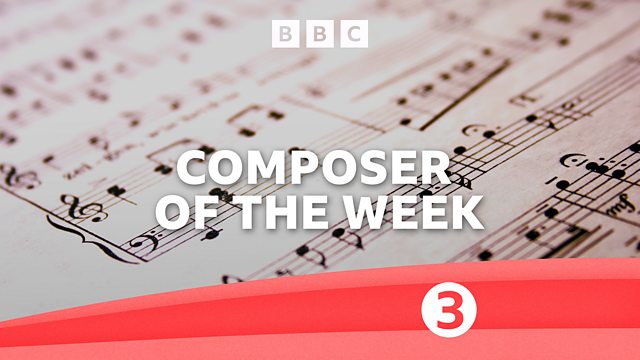
Hostility in the Press
Donald Macleod follows the relationship from friend to bitter foe between Bruckner and music critic Hanslick.
Donald Macleod follows the relationship from friend to bitter foe between Bruckner and Hanslick
Anton Bruckner was one of the great symphonists, and yet recognition for his talents as a composer came late in life. An Austrian by birth, noted for his improvisatory skills at the organ, he received invitations to travel abroad to France and England to demonstrate his skills. But though he would eventually be recognised as one of the most innovative composers of the late 19th century, during his lifetime he was plagued by doubt, not helped by the harsh reactions of Viennese music critics. He was also often dubbed a buffoon because of his dress, dialect and mannerisms. This week Donald Macleod lifts the lid on the life and music of Anton Bruckner, focusing upon different themes to better understand both the man and the music.
Eduard Hanslick was one of the most influential music critics in Vienna in his day, with the power to annihilate a person's reputation. Bruckner first met Hanslick in the 1860s, and their relationship was initially full of friendly advice and encouragement. The critic was very receptive to Bruckner’s works, including his Symphony No 1, and his Mass in F minor. However, this supportive tone from Hanslick was not to last, and with the premiere of the composer’s Symphony No 2 came the first signs that the relationship had cooled.
Hanslick's main objection was Bruckner's devotion to Wagner, an influence that could clearly be heard in his music. Fuelled by his dislike of any taint of Wagnerism, Hanslick did his best to stop Bruckner from being appointed to a teaching post at the Vienna University, and his comments in the press - characterising Bruckner's music as hopelessly disjointed, unnatural, pretentious, morbid - were designed to turn people and other music critics against the composer. But despite Hanslick's best efforts, Bruckner’s music became all the rage, and the critic's vitriol was a lone voice.
Prelude in C major, WAB 129
Gerd Schaller, organ
Locus iste, WAB 23
La chapelle Royale
Collegium Vocale
Philippe Herreweghe, director
Symphony No 2 in C minor, WAB 102 (Scherzo)
Vienna Philharmonic
Christian Thielemann, conductor
Symphony No 6, WAB 106 (Adagio)
Bergen Philharmonic Orchestra
Thomas Dausgaard, conductor
Symphony No 8 in C minor, WAB 108/2 (Allegro moderato)
Bruckner Orchestra Linz
Markus Poschner, conductor
Virga Jesse floruit, WAB 52
Latvian Radio Choir
Sigvards Klava, director
Produced by Luke Whitlock
Last on
Music Played
-
![]()
Anton Bruckner
Prelude in C major, WAB 129
Performer: Gerd Schaller.- PROFIL : PH16034.
- PROFIL.
- 12.
-
![]()
Anton Bruckner
Locus iste, WAB 23
Ensemble: La Chapelle Royale. Choir: Collegium Vocale Gent. Conductor: Philippe Herreweghe. Ensemble: Musique Oblique Ensemble.- HARMONIA MUNDI : HMC-901322.
- HARMONIA MUNDI.
- 6.
-
![]()
Anton Bruckner
Symphony No 2 in C minor (3rd mvt)
Orchestra: Vienna Philharmonic. Conductor: Christian Thielemann.- SONY : 19439914122.
- SONY.
- 3.
-
![]()
Anton Bruckner
Symphony No 6 in A major (2nd mvt)
Orchestra: Bergen Philharmonic Orchestra. Conductor: Thomas Dausgaard.- BIS : 2404.
- BIS.
- 2.
-
![]()
Anton Bruckner
Symphony No 8 in C minor (1st mvt)
Orchestra: Bruckner Orchestra of Linz. Conductor: Markus Poschner.- Capriccio : C8081.
- CAPRICCIO.
- 1.
-
![]()
Anton Bruckner
Virga Jesse floruit, WAB 52
Choir: Latvian Radio Chorus. Director: Sigvards Kļava.- ONDINE : 1362-2.
- ONDINE.
- 14.
Broadcast
- Thu 15 Sep 2022 12:00����ý Radio 3
Beethoven Unleashed – the box set
What was really wrong with Beethoven?
Composers A to Z
Who knew? Five eye-opening stories from Composer of the Week
Five reasons why we love Parry's Jerusalem
What is the strange power of Jerusalem which makes strong men weep?
A man out of time – why Parry's music and ideas were at odds with his image...
The composer of Jerusalem was very far from the conservative figure his image suggests.
Composer Help Page
Find resources and contacts for composers from within the classical music industry.





